What are Hydraulic Pipe Benders
Hydraulic pipe benders are sophisticated tools utilized in various industries to manipulate pipes and tubing into desired angles and curves. They serve a wide range of professionals, from plumbers and HVAC technicians to automotive and aerospace engineers, offering a solution for the precise bending of metal pipes. These machines use hydraulic pressure to exert force on the pipe, enabling it to bend without causing kinks or collapses.
The working principle of a hydraulic pipe bender revolves around Pascal's law, which states that when pressure is applied to a confined fluid, the pressure change occurs throughout the entire fluid. This means when the hydraulic fluid in a pipe bender is pressurized, it will move the pistons connected to the bending dies. The pipe is placed between these dies, and as the piston pushes the dies together, the pipe bends around the die's shape to create a specific angle or curve.
The hydraulic system ensures consistent force is applied during the bending process, which is crucial for maintaining the integrity of the pipe's cross-sectional area. This consistency helps prevent weak spots that could lead to failure under pressure. Hydraulic pipe benders come in various designs and capacities, making them suitable for small-scale applications such as custom automotive exhausts and large-scale projects like industrial pipeline installations.
Types of Hydraulic Pipe Benders
The variety of hydraulic pipe benders caters to a broad spectrum of applications and material types. Here's an overview:
Manual Hydraulic Pipe Bender: Often used for on-site work where electricity is not available, these benders rely on manual force applied through a hand pump to generate hydraulic pressure. They are suitable for smaller projects or those with less frequent bending needs.
Electric Hydraulic Pipe Bender: These benders use electric motors to power the hydraulic system, providing more consistent bending force and speed. They are typically used in workshops where high productivity is necessary.
CNC Hydraulic Pipe Bender: CNC (Computer Numerical Control) benders offer precision and programmability for complex bends. They are ideal for high-volume production environments where repeatability and accuracy are paramount.
Vertical Hydraulic Pipe Bender: With a vertical form factor, these benders are suited for specific applications where space constraints limit larger horizontal machines. They are commonly found in workshops with limited floor space.
Roll Bending Machine: Using three rollers to produce gradual bends in metal tubing, roll bending machines can create large-radius curves necessary for construction projects or architectural designs.
How to choose Hydraulic Pipe Benders
Selecting the right hydraulic pipe bender requires careful consideration of your industry's needs and constraints. Here are several factors that businesses should consider:
Application Specificity: Identify the types of bends you need to achieve and select a machine that can accommodate those requirements—whether it’s simple angles or complex multi-plane bends.
Material Compatibility: Ensure that the machine can handle the types of materials you work with—be it carbon steel, stainless steel, aluminum alloys, or non-metallic materials like PVC.
Volume of Work: Consider how often and how much bending will be done. For high-volume work, an electric or CNC hydraulic bender would be more efficient than a manual one.
Precision Required: If your industry demands high precision, such as aerospace or automotive manufacturing, investing in a CNC hydraulic pipe bender would be advantageous.
Space Constraints: Assess your workspace and decide whether a vertical or horizontal bender would fit better. Also, consider the machine’s footprint relative to your available space.
Safety Features: Look for machines with built-in safety measures such as emergency stop buttons or safety guards, particularly if you're operating in an environment with strict safety regulations.
Best Hydraulic Pipe Benders on Alibaba.com
Alibaba.com stands out as an extensive marketplace that brings together a diverse array of suppliers offering hydraulic pipe benders suitable for any business need. With offerings that span across various types—from manual to CNC—businesses can find machinery that aligns with their operational requirements and material specifications. Alibaba.com serves as a bridge connecting buyers globally with suppliers capable of meeting custom requirements, ensuring that businesses receive equipment tailored to their unique industrial applications.
The platform's user-friendly interface simplifies the process of finding the right hydraulic pipe bender by allowing buyers to filter search results based on key attributes such as material processed, core components, automation level, and more. Furthermore, Alibaba.com offers Trade Assurance—a service designed to foster trust by protecting payments until delivery has been confirmed—underscoring its commitment to secure transactions and buyer satisfaction.
Businesses looking for reliable equipment can confidently turn to Alibaba.com for its vast selection of hydraulic pipe benders backed by detailed machinery test reports and comprehensive after-sales services offered by suppliers worldwide. This approach not only facilitates informed purchasing decisions but also contributes significantly towards enhancing operational efficiency and productivity for businesses across industries.
Common FAQs for Hydraulic Pipe Benders
What is a hydraulic pipe bender and how does it work?
A hydraulic pipe bender is a machine designed to bend pipes using hydraulic pressure, based on Pascal's law. The machine uses a hydraulic system to move pistons that apply force to the pipe, shaping it around a die to achieve the desired bend.
What types of materials can hydraulic pipe benders work with?
Hydraulic pipe benders can work with a variety of materials including carbon steel, stainless steel, aluminum alloys, and certain plastics like PVC. The suitability for different materials will depend on the specific machine's capacity.
Can hydraulic pipe benders create bends in different planes and angles?
Yes, many hydraulic pipe benders are capable of creating complex multi-plane bends and various angles depending on the dies used and the machine's capabilities, especially CNC controlled benders which offer high precision.
Are there different types of hydraulic pipe benders available?
Yes, there are several types available including manual, electric, CNC, vertical, and roll bending machines, each suited for different applications, volumes of work, and precision levels.
How do I choose the right hydraulic pipe bender for my business?
To choose the right hydraulic pipe bender, consider factors such as the types of bends required, material compatibility, volume of work, precision needed, space constraints in your facility, and safety features.
What are the advantages of using a CNC hydraulic pipe bender?
CNC hydraulic pipe benders offer high precision and programmability for complex and repeatable bends, making them ideal for high-volume production environments with strict accuracy requirements.
How does volume of work affect the choice of hydraulic pipe bender?
For high-volume work that requires quick and consistent bending, electric or CNC hydraulic benders are more efficient than manual ones. They reduce labor intensity and increase productivity.
What should I consider regarding material compatibility when selecting a hydraulic pipe bender?
Ensure that the machine is capable of handling the specific type of pipes or tubes you will be working with—this includes considering material thickness, diameter, and properties such as tensile strength.
Can hydraulic pipe benders be used for both standard and custom bending applications?
Yes, many hydraulic pipe benders can be used for both standard bending operations as well as customized applications by using different sets of tooling or dies to achieve specific bend shapes.
What safety features should I look for in a hydraulic pipe bender?
Look for safety features such as emergency stop buttons, safety guards or shields, lockout/tagout capabilities, and features that comply with industry-specific safety standards.
How does workspace limitation influence the selection of a hydraulic pipe bender?
If you have limited space in your workshop or facility, you may need to opt for a vertical hydraulic pipe bender or one with a smaller footprint to fit within your available area.
Are there any maintenance requirements for hydraulic pipe benders?
Hydraulic pipe benders require regular maintenance such as checking fluid levels, inspecting hoses and fittings for leaks or wear, and ensuring that moving parts are lubricated to prevent breakdowns and extend service life.


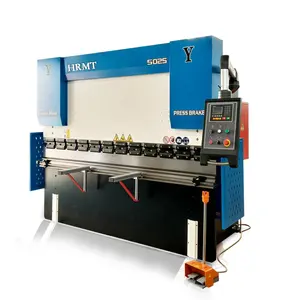













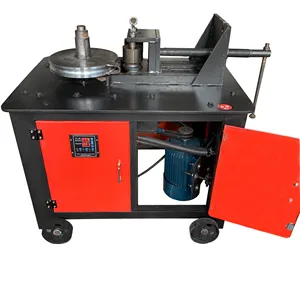

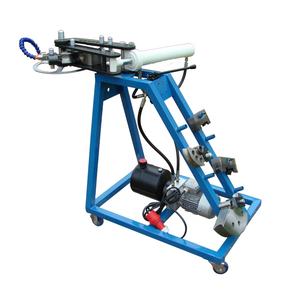
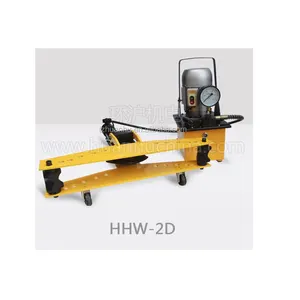

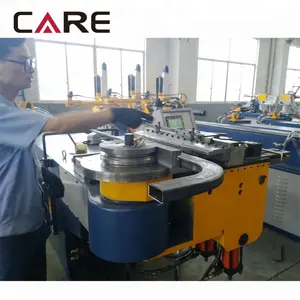



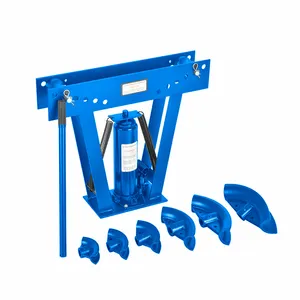

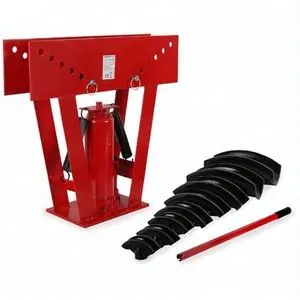
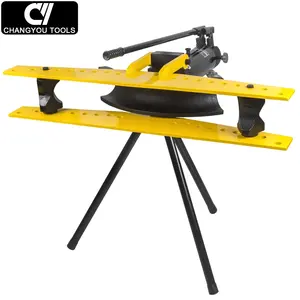
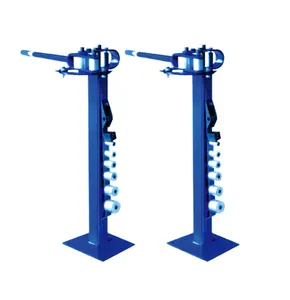



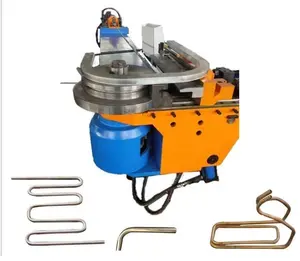

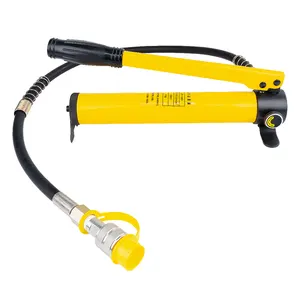









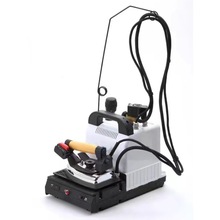


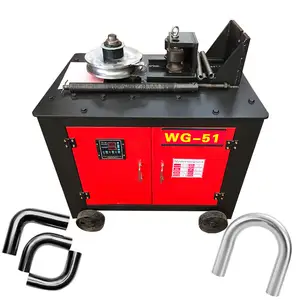
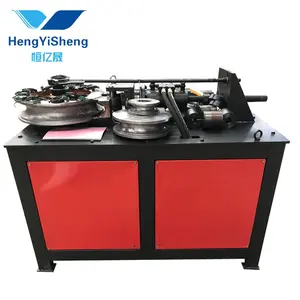
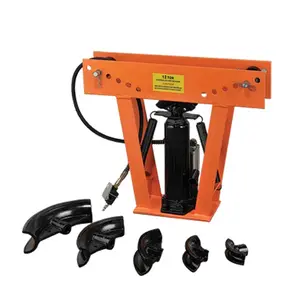
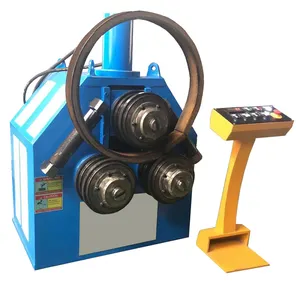

























 浙公网安备 33010002000092号
浙公网安备 33010002000092号 浙B2-20120091-4
浙B2-20120091-4